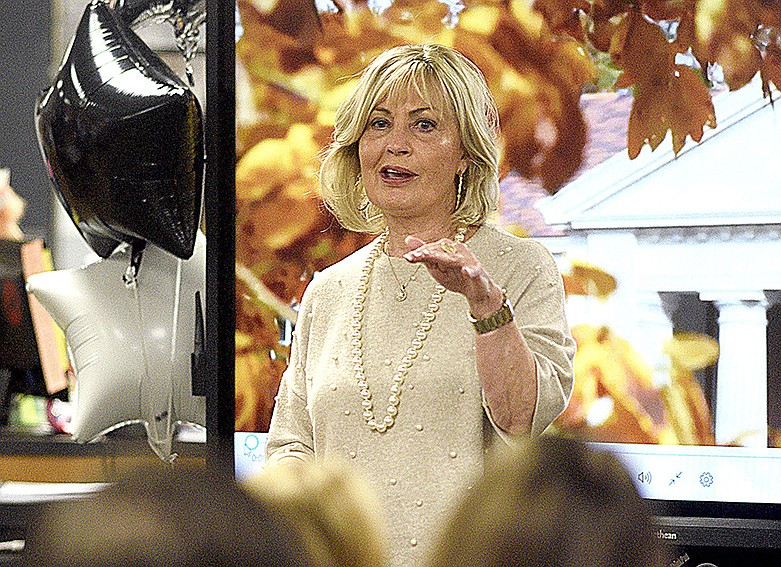NASHVILLE - Tennessee House Finance Committee Vice Chairwoman Patsy Hazlewood says she intends to press forward with her proposed two-month sales tax holiday on grocery food purchases despite fellow Republican and Gov. Bill Lee's resistance to the idea.
The Signal Mountain lawmaker earlier this week confirmed in a Times Free Press interview that Lee had "flagged" the bill, citing philosophical opposition to it.
"He did," Hazlewood said Monday night after Lee delivered his annual State of the State address to lawmakers and released his proposed $40.8 billion annual spending plan. "I heard today."
Hazlewood said she had not received an actual "flag" letter, traditionally used by some governors to state their opposition to a lawmaker's bill. "No," she said, "just kind of a heads-up phone call" from an administration official she did not identify.
Tennessee government is now busting at the seams with hundreds of millions of dollars in one-time surpluses and recurring funds this year. That's courtesy of both the state's booming economy as well as low-ball revenues by the State Funding Board. Board members have been on a years-long streak of ignoring consensus estimates by economists on anticipated revenue collections and underestimating them.
A number of lawmakers, including Rep. Mike Carter, R-Ooltewah, are looking at ways to return the current and anticipated addition surplus of upwards of $1.1 billion to taxpayers in one form or another.
"As the governor said, Tennessee is in great financial position," said Hazlewood, who notes that lifting the state's 4% sales tax on food for two months would cost about $100 million.
She added: "I still believe that those food tax holidays are a great way to get money back in every Tennessean's pocket. I'm sure the governor has great ideas in here, but I'm still going to be pursuing my bill."
While the General Assembly's website shows no Senate companion bill to Hazlewood's measure has been filed, she said she does have a Senate sponsor lined up and it's expected to be filed.
In his proposed fiscal year 2020-2021 budget, Lee has outlined one tax cut - a $40 million reduction in the state's $400-per-person annual professional privilege tax for doctors, lawyers, stock brokers and lobbyists. It would cut the tax to $200.
(MORE: Issues, bills, hopes and controversies as Tennessee General Assembly returns)
Lee's budget proposal accounts for the remainder of the surplus. For example, he's proposed setting up a $250 million mental health trust fund where earnings will be used for innovative approaches to help troubled students.
Another $50 million is designated for the state's Rainy Day emergency reserve. And $148 million in one-time money is going to economic and community development. The list goes on - and on.
Gillum Ferguson, a Lee spokesman, said in an email the governor doesn't send flag letters so there is nothing to provide.
"The governor is always open to finding prudent ways to cutting taxes, and his FY2021 budget proposal does cut the professional privilege tax in half and returns $100 million to county and municipal governments," Ferguson said.
He added "we believe our plan is the most efficient and accountable way to put more money in the pockets of hardworking Tennesseans and doesn't present situations that could disrupt state services, jeopardize the state's bond ratings, or throw the budget out of balance."
Contact Andy Sher at asher@timesfreepress.com or 615-255-0550. Follow him on Twitter @AndySher1.
